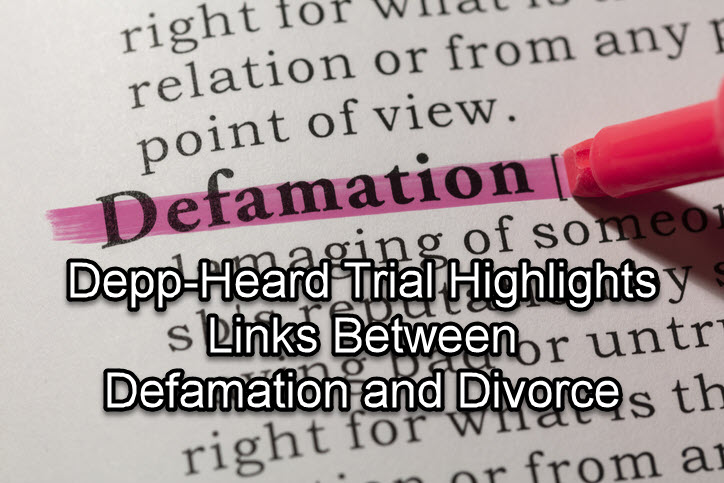Depp-Heard Trial Highlights Link Between Defamation and Divorce

A spouse who is unhappy with their marriage might complain about their spouse to friends and family. Emotions might lead to exaggerations and even outright falsehoods. Even when a husband or wife just vents to one person, loose lips and social media could make a harmful misrepresentation spread like wildfire among the couple’s community. In some cases, the damage is such that divorcing spouses find themselves with additional legal problems.
As the recent multimillion-dollar verdict in the Johnny Depp-Amber Heard case shows, making false statements about your current or former spouse to a third party could trigger a defamation claim. Knowing what constitutes legal defamation might help you determine if you have a potential cause of action for libel or slander along with your divorce. Understanding the legal standard could also help you from crossing the line, even if the divorce gets heated.
A defamation claim requires that the defendant make a false statement that harms the plaintiff’s reputation to at least one third party. For instance, if a husband going through a divorce tells a neighbor an untrue story about his wife having an affair, the wife might be able to win damages in a slander claim. Libel is a similar cause of action that involves published or broadcast falsehoods as opposed to those which are spoken.
You aren’t liable, however, unless the jury finds that you made the statement about a provable or disprovable matter with a culpable state of mind. Opinion statements do not qualify. A wife calling her soon-to-be ex a jerk is not defamatory, because that status cannot be proven or disproven. Likewise, to win damages, the plaintiff must show that their reputation was harmed. Lying about something such as your spouse’s food preferences is unlikely to meet this standard.
Statements made as part of your divorce proceedings, including allegations in court filings and witness testimony, cannot form the basis of a defamation action. However, false allegations in court filings or in court can constitute unlawful perjury.
Don’t let matrimonial conflict lead you into telling damaging lies about your spouse. When things get rough, you can let your attorney do the talking. If you think you’ve been hurt by their false statements, you can ask your attorney about the viability of a defamation claim.
The lawyers at Bryan L. Salamone & Associates, P.C., in Melville, New York have vast experience helping Long Island clients make it through the divorce process with their finances and well-being intact. To schedule your free initial consultation with a member of our team, call 1.631.479.3839 or contact us online.





